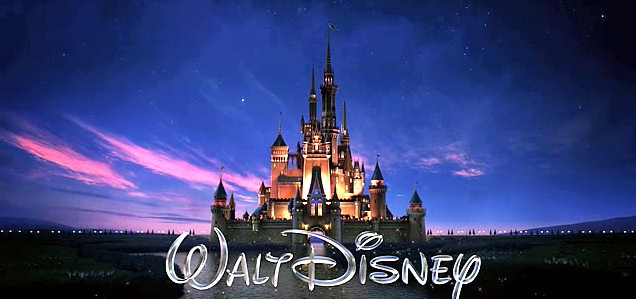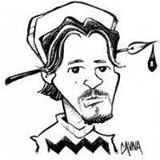
Jonathan Pytko stood before an art class at Georgetown University this fall, the sneak footage of his employer's forthcoming film in tow. Pytko, a lighting guy who has such Oscar-winning films as "Up," "Brave," "The Incredibles" and "Ratatouille" on his gleaming resume, is a 12-year veteran of the esteemed Pixar Studios, whose films are distributed by Disney. Which means the man knows well and up-close the storytelling tropes popularized for many decades by the Mouse House.
On this afternoon, Pytko was waxing cinematic as he set up breathtakingly beautiful, eerily realistic clips from Pixar's latest animated feature, "The Good Dinosaur," which opened over this Thanksgiving holiday week. The film centers on the titular dino, Arlo the Apatosaurus, and Spot, the wolflike boy he befriends, and to properly introduce one clip involving them, Pytko had to let a major spoiler slip.
Arlo, the lighting effects supervisor revealed, tragically loses a parent early in the film. Oooof, members of the art class groaned collectively before laughing at their shared visceral reaction. Pytko, proving oratorically nimble, joined in the laughter and then rejoindered tongue in cheek: We had to because it's Disney.
Smartly, the Pixar man making this advance tour of East Coast colleges was addressing the storytelling elephant in the room - a plotting pachyderm even more imposing than the doting "Dumbo" mother who is locked away, rendering Disney's big-eared title hero a virtual orphan.
That's because what these art students were convulsing and chortling at was the reliable, trite-and-true tool that the "imagineers" at the Tragic Magic Kingdom have been leaning on since before World War II, and which spinners of classic, unblinkingly grim fairy tales (including those adapted by Disney) readily deployed a century and more before that.
The fuller picture here is that part of the late-great Walt Disney's genius was knowing that animation was no barrier - and was so often a boon - to entertaining viewers of all ages. And perhaps no drama entertains all ages as reliably as the coming-of-age story.
Ever since the studio's first full-length animated film, 1937's "Snow White and the Seven Dwarfs," Disney heroes and heroines, princesses and paupers, cubs and puppies have routinely had to face a crucible that forces them to grow up. We are witnessing the often-forked road to maturation. And one of the most immediate and emotional moves a spinner of yarns can pull, a turn as reliably golden as Rumpelstiltskin's grain, is to disappear one or both parents - whether literally or virtually, whether a protagonist is orphaned at the outset or we witness the fatal event in the film's first reel, whether a parent's absence goes unexplained, or even whether the peril ultimately proves only near-fatal. Nothing crushes a child's cocoon quite like the event that produces a wounded but tested butterfly.
From Disney's main animation house, of course, we have come to expect this sleight of shorthand. It is in the studio's DNA, etched for each generation of creators and handed down like a golden bag of tricks. And so we have been groomed by a parade of wounded princesses, especially, from Cinderella to Elsa, from Belle to Ariel to Jasmine to Tiana.
And still, Death's scythe for Disney parents is swung wide; in last year's "Big Hero 6? from Disney/Marvel, we even endure the one-two combo of fatal blows to parents and then the beloved guardian brother. O, how much more conditioned can we be without growing completely calloused?
(We also accept these tales more from Walt Disney's own lifetime, perhaps, when we realize that he felt great grief over, and at least partly responsible for, his own mother's death by asphyxiation, due to carbon monoxide poisoning, after the brothers Disney bought their parents an L.A. home that turned out to have a leaky furnace. A few years after Flora Disney's death, son Walt released "Bambi," which interestingly included a character named Flower.)
Now, to be sure, offing a narrative's parent still holds a bevy of storytelling benefits. Notably, not only is it shorthand for signaling to the viewer a coming-of-age tale, but it also establishes quick audience engagement, and typically sympathy, for a young, victimized protagonist. What swifter way to make us care about a character than to introduce a major tragedy to be overcome?
From the Brothers Grimm to the Fantastic Four's Ben Grimm, it's a time-tested ploy for creating a time-saving connection. (And speaking of comics, it's worth noting that just months after Walt was introducing Snow White to the world, another foundational character to a creative empire - Superman from Detective Comics, or DC - was also being orphaned and set off into a new world. Yes, this was an especially brutal era for fictional parents.)
Yet after eight decades of such shenanigans, the Disney studio - which is also now keeper of the Star Wars franchise, with all its death-to-daddy issues, and the Marvel Cinematic Universe, with such parent-losing superheroes as Daredevil and Hawkeye - as much as ever risks overplaying the Orphan Card. Everyone from Dickens (whose knew hard times as a boy) to Harold Gray (who drew hard times, with "Little Orphan Annie") to Lindgren (creator of the Pan-like Pippi Longstocking) has found artistic riches in the child cast adrift before finding new or would-be guardians.
But being a popular film studio ever in need of new stories presents a different problem: Rely on the same tropes for the better part of a century, and the public will begin to react like those Georgetown art students. Eventually if not already, icing a parent as readily as "Frozen" did could become an audience's own shorthand for dis-engagement.
Then again, that's the grandfathered-in Disney. We're accustomed to the studio deciding, like Snow White, to go to the well too often. But what about the mighty Pixar, that modern standard-bearer for exceptional storytelling?
Well, we hold out hope that Pixar's supreme storytellers won't go too easily into that good night with a deathly tired trope. They certainly appear judicious with their toolkit. The mother's early death is the essential fulcrum in "Finding Nemo," of course, and fathers remain merely invisible in "Up" and "Toy Story." And from "Brave" to "The Incredibles" to "Inside Out," the studio smartly lets the visible parents survive.
That, then, is what makes the daddy death in the new "Good Dinosaur" a little disappointing from a creative standpoint. Not only does the tragic scene play like a cliche, but it also bears far too much physical similarity to "The Lion King" - to the point that at a recent screening, I heard a teenager half-whisper to an adult one word - just one all-too-telling word: "Simba."
Pixar illustrates one gorgeous, glistening dinosaur. We can only hope the studio will retire the storytelling fossil of parental death for a few years. Because eventually, if this trope passes the point of audience exhaustion, the fatal blow will be not to the parent, but to the very film itself.
Comment by clicking here.
Writer/artist/visual storyteller Michael Cavna is creator of the "Comic Riffs" column and graphic-novel reviewer for The Washinghton Post's Book World. He relishes sharp-eyed satire in most any form.


 Contact The Editor
Contact The Editor
 Articles By This Author
Articles By This Author
